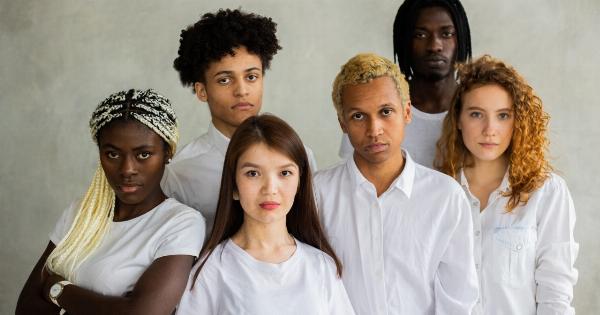There often comes a time in our lives when we feel compelled to put on a fake smile and pretend to be happy, even when the reality may be quite different.
The reasons behind this façade can vary from person to person, but ultimately, it begs the question: why do we fake happiness? In this article, we delve into the intricacies of this behavior and explore some of the factors that contribute to our inclination to put on a happy face when we may not truly feel it.
Societal Expectations and Pressure
One of the primary reasons why we fake happiness is due to the immense societal pressure to always appear cheerful and content.
From an early age, we are taught to suppress our negative emotions and put on a brave face, regardless of what we may be experiencing internally. This societal expectation often leads us to believe that showing vulnerability or sadness is a sign of weakness, prompting us to put on a façade of happiness.
Fear of Judgment and Rejection
Another significant driver behind our tendency to fake happiness is the fear of being judged or rejected by others.
We often worry that if we display our true emotions, we will be seen as undesirable or weak, potentially creating a distance between ourselves and the people around us. This fear of losing connection and acceptance leads us to wear a mask of happiness, even when we may be struggling internally.
Maintaining a Positive Image
For many individuals, maintaining a positive image is of utmost importance. Whether it’s for personal or professional reasons, appearing happy can often be seen as crucial to success.
Employers, friends, and even family members may respond more positively to someone who exudes positivity, which can drive individuals to fake happiness to preserve a positive reputation.
Escaping Negative Perceptions
Faking happiness can also be a means of escaping negative perceptions associated with mental health issues or challenging life circumstances.
Society has, unfortunately, stigmatized mental health, often leading individuals to feel ashamed or embarrassed about their struggles. As a result, they may choose to wear a happy mask to avoid judgment and maintain a sense of normalcy.
Avoiding Burdening Others
Many individuals fake happiness as a means of protecting others from their burdens. They may feel that their problems or negative emotions are theirs alone to bear and believe that expressing them would impose an unnecessary burden on their loved ones.
In an attempt to maintain harmony and protect those they care about, these individuals opt to conceal their true emotions and project a cheerful demeanor.
The Illusion of Control
Wearing a mask of happiness can also provide individuals with a sense of control, even if it is only temporary. By projecting a positive outlook, individuals may believe they are maintaining control over their own emotions, and in turn, their lives.
This illusion of control provides them with a sense of empowerment and can serve as a coping mechanism during times of uncertainty or difficulty.
Escapism and Distraction
Another reason why we fake happiness is the desire to escape from our problems or current realities. When life becomes overwhelming, putting on a fake smile can serve as a form of distraction or escapism.
While the problems may linger underneath the surface, momentarily pretending to be happy allows individuals to escape their worries and focus on something seemingly positive.
Cultural Expectations
In some cultures, displaying happiness is considered a social norm. These cultural expectations can further reinforce the inclination to fake happiness, as individuals strive to meet the perceived standards of their community or society.
Failing to demonstrate happiness may be seen as disrespectful or out of sync with cultural norms, compelling individuals to put on a façade, even if it goes against their true emotions.
Fear of Confronting Internal Issues
Faking happiness can be a way to avoid confronting internal issues or confronting unresolved emotions. By putting on a happy face, individuals can avoid delving into their deeper feelings and tackling the underlying root causes of their discontent.
It provides a temporary respite from the discomfort of facing one’s own inner turmoil.
Seeking Validation and Approval
Lastly, we often fake happiness to seek validation and approval from others. By portraying ourselves as happy and content, we hope to elicit positive reactions, praise, or even envy from those around us.
This desire for external validation can greatly influence our behavior and make us more likely to hide any negative emotions or struggles we may be going through.
In Conclusion
Faking happiness can stem from various personal, societal, and psychological reasons.
Whether it’s societal expectations, fear of judgment, maintaining a positive image, or avoiding burdening others, the tendency to conceal our true emotions is prevalent in our daily lives. However, it is essential to acknowledge and address our authentic emotions, as repressing them can have negative consequences for our mental and emotional well-being.
Only by embracing our true selves can we foster genuine happiness and forge deeper connections with those around us.































